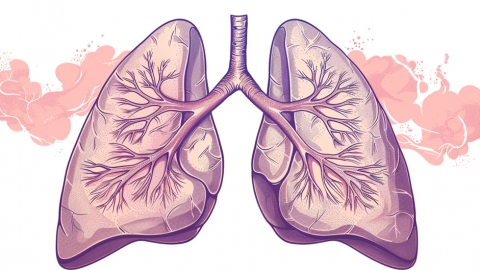Can an 80-year-old elderly person recover from white lung?
For an 80-year-old elderly person with white lung, recovery is possible if the condition is mild and treated promptly and effectively. However, if the condition is severe or the underlying cause is difficult to eliminate, recovery becomes unlikely. If any abnormalities occur, prompt medical attention is recommended. A detailed explanation is as follows:

If the white lung in the elderly is caused by mild pulmonary inflammation and treatment is timely and effective, the lungs may recover. Through active anti-inflammatory treatment, lung inflammation can be controlled, exudates can be absorbed, and lung function may return to normal. Additionally, if the white lung is caused by a viral infection, antiviral medications such as Cefixime tablets, Ambroxol Hydrochloride tablets, or Ribavirin granules may be used under medical guidance during the early stages of infection. If the patient's immune system is relatively strong, the body may suppress viral replication, reduce the inflammatory response in the lungs, and potentially achieve recovery.
If the white lung is caused by severe pulmonary inflammation, interstitial pulmonary fibrosis, chronic obstructive pulmonary disease (COPD), lung cancer, or other conditions, the treatment becomes more challenging, and the likelihood of recovery decreases. These diseases are often accompanied by significant structural damage to the lungs and a marked decline in function, making full recovery difficult even with treatment. Particularly when the elderly patient also has underlying conditions such as hypertension, diabetes, or heart disease, the difficulty of treatment increases further, and the chances of recovery diminish accordingly.
During treatment, it is essential to closely monitor changes in the elderly patient's condition, follow medical advice regarding medication, and provide enhanced nutritional support and nursing care to improve immunity and quality of life. Additionally, prevention of complications such as pressure ulcers and worsening pulmonary infections should be prioritized.











